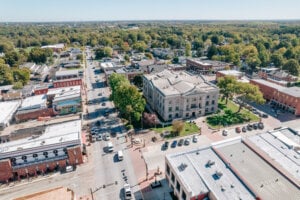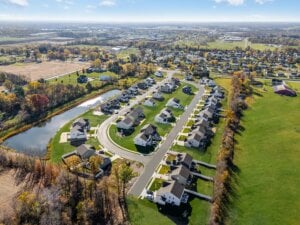Those following the news know that tropical storms have devastated many of our incredible communities in Florida, Texas and Puerto Rico. It’s impossible not to be touched by the humbling images of first responders and ordinary residents helping to rescue their neighbors and rebuild their neighborhoods. We all have it within us to rise to the occasion – including you. There are impactful, meaningful ways for you to help each and every one of our troubled communities, whether by giving to a good cause or rolling up your sleeves to help out.
General Tips for Helping Out
As tempting as it can be to drop everything and rush to help out these communities, there are a few critical things to keep in mind about volunteering and donating in the wake of a hurricane. Keep these tips in mind, and you’ll be an incredibly effective ally to those most in need!
- Support local organizations first. Donations to massive entities like the Red Cross are certainly better than nothing, but as FEMA advises potential volunteers, it’s best to start with state and local organizations. These groups are already positioned to distribute food and aid to those who need it most, and have knowledge of their communities that’s invaluable to effective relief efforts. We’ll try to give a nice selection of local organizations to support below, but when you can, it’s always good to head online and see which groups are doing some good and need the most help.
- Stay engaged. After massive disasters, there’s always a flood of much-needed volunteers, funding, and supplies in the days and weeks that follow. Unfortunately, most of those that donate stop keeping track of the situation afterwards, which is a big problem for long-term recovery. Donating and volunteering is great any time, but doing so a few months after the disaster as well as in the immediate aftermath is especially helpful.
- Give year-round. A great way to help relief efforts for future disasters is to donate and volunteer regularly. It’s much easier for an organization to help out if it already has money from year-round donors than if it has to coordinate a sudden influx of supplies and cash it’s not prepared to handle. Whether it’s something as simple as a monthly donation or as selfless as regular visits to blood drives, there are plenty of ways you can help out at all times of the year.
Houston, Texas
We usually mean something very specific when we talk about Houston home builders, but in this case, we could mean you! Organizations like Habitat for Humanity and Volunteer Houston have need for volunteers over the coming months, whether it’s caring for kittens and puppies overflowing the city’s shelters or building new housing for people desperately in need. If you can spare the time for a volunteering vacation for a few weeks, there’s no shortage of ways to help in person. If you can’t make the trip, consider donating to either organization, or other local groups like the Houston Food Bank or Boys & Girls Club.
Fort Myers/Naples, Florida
Recent hurricanes have hit the Sunshine State’s western coast particularly hard, and there are plenty of ways to help Florida as a whole recover from the storms. Individual towns could certainly use some help, and if you want to chip in, several local organizations in Fort Myers and Naples could use anything you can give. Naples area homes in the Holiday Manor co-op took a beating, and the local branch of Habitat for Humanity has already started to help. Check out this page for chances to volunteer. If you’d like to help out in Fort Myers, the Midwest Food Bank needs volunteers to help prepare and distribute food to hurricane victims. For more information about ways to help, check out Collier 2-1-1. The helpline always needs donations, and can match volunteers with causes that need help!
Sarasota, Florida
Farther up the coast, the beautiful bayside community of Sarasota needs your help – whether in the form of volunteering or donations is up to you. Most organizations in the area are in desperate need of supplies, with the Sarasota Police Department and Manatee Food Bank encouraging donations to purchase food, medical equipment and more. If you’d like to provide more hands-on help, the Manatee Food Bank needs more volunteers! You can contact [email protected] for more information.
Tampa, Florida
Thankfully, the Tampa Bay area was spared from the mass devastation many meteorologists predicted Hurricane Irma would wreak, but there are still plenty in the area that could use your help. The RCS Food Bank can always use donations to buy more food and supplies, while those on the ground can help by donating blood at a local OneBlood office.
Puerto Rico
If you’re looking for more ways to help hurricane victims, Without Walls International Church members in the Tampa area provided a touching reminder of our shared humanity by flying much-needed supplies to ravaged Puerto Rico. If you’d like to follow in their example, consider making donations to the Hispanic Federation’s UNIDOS Disaster Relief Fund, or the United for Puerto Rico initiative founded by the island’s first lady. Puerto Rico’s recovery is likely to be a long and arduous one – if you can, check in regularly on the relief effort and donate to local organizations to help. When the time comes that they ask for volunteers, those who have the time and resources to help should seriously consider it.
The amazing scenery, culture and community of Houston, western Florida and Puerto Rico has given so many people so much joy over the years. In the wake of devastating storms, we can show our gratitude to the people and places that make these cities with volunteering, donating and positive action. Together, we can get the Gulf Coast back on its feet, and ensure that they come out of the storm stronger than ever before. We humbly ask that you do whatever you can; donations of money, food, supplies from afar or hands-on volunteering to rebuild homes and distribute resources to those in need are all necessary, needed and appreciated.









